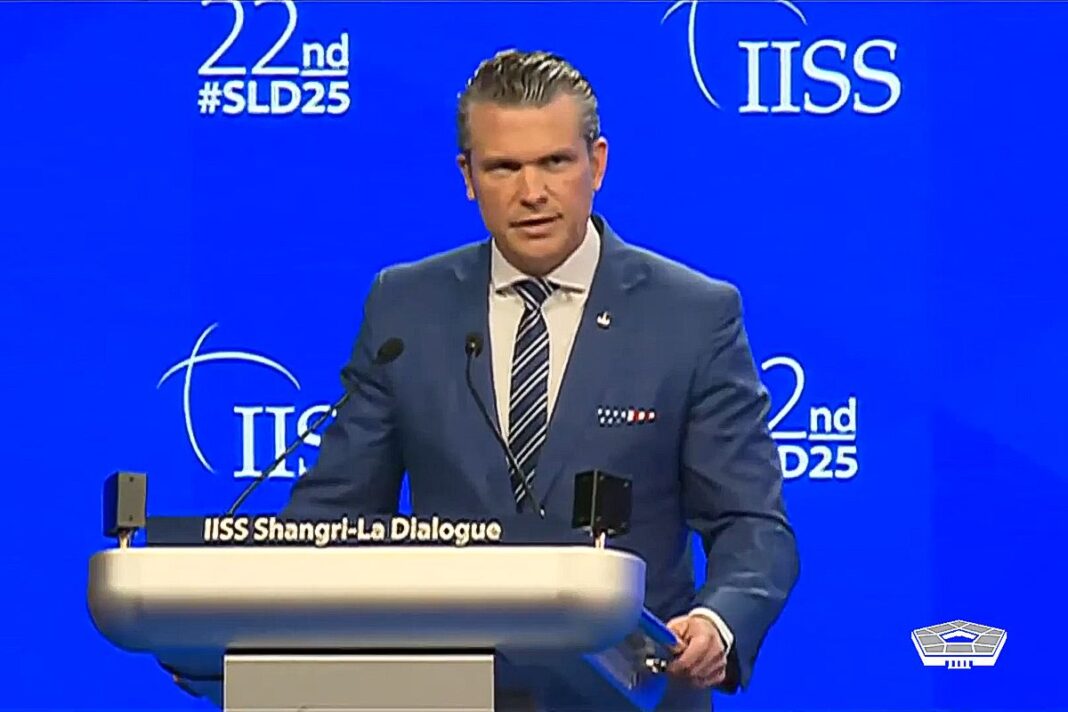The defense secretary says the United States does not seek conflict with China but will ‘fight and win decisively’ if deterrence fails.
Defense Secretary Pete Hegseth pledged on Saturday that the United States would continue to support Indo-Pacific allies in maintaining peace and stability, as he warned of an imminent military threat from China.
Speaking at the Shangri-La Dialogue in Singapore, Hegseth said that China is making credible preparations to use military force to change “the balance of power” in the Indo-Pacific, noting that while nobody knows what the Chinese Communist Party (CCP) will do in terms of Taiwan and its other neighbors in the Indo-Pacific, “the U.S. and its allies must nonetheless be ready with ‘urgency and vigilance.’”
The CCP, which has never ruled Taiwan, considers the self-governed island to be a renegade province and has never ruled out the possibility of using force to control it.
Hegseth warned that any attempt by Beijing to seize the democratically-ruled island could potentially result in “devastating consequences” for both the region and the world.
“There’s no reason to sugarcoat it: the threat China poses is real, and it could be imminent,” he said.
Hegseth urged Indo-Pacific nations to increase their defense spending to bolster military capabilities, citing NATO members’ commitment to spend 5 percent of their gross domestic product on defense.
“How can it make sense for countries in Europe to do that while key allies and partners in Asia spend far less in the face of a far more formidable threat from Communist China, not to mention North Korea,” he said.
Hegseth said the Trump administration aims to re-establish deterrence in the Indo-Pacific by enhancing its “forward force posture” in the Western Pacific, helping allies bolster their defense capabilities, and rebuilding its defense industrial bases.
The Pentagon chief said that President Donald Trump has vowed not to allow China to invade Taiwan on his watch, calling on regional allies to work alongside the United States in efforts to prevent potential war.
He reiterated that the United States has no intention of engaging in conflict with China. But Washington refused to “be pushed out of this critical region” and will not allow its allies to be subordinated, he added.
“Let me again be clear: The United States does not seek war. We do not seek to dominate or strangle China,” he stated. “But we must ensure that China cannot dominate us—or our allies and partners.”
Hegseth said that if deterrence fails, the United States “will be prepared to do what the Department of Defense does best—fight and win—decisively.”








